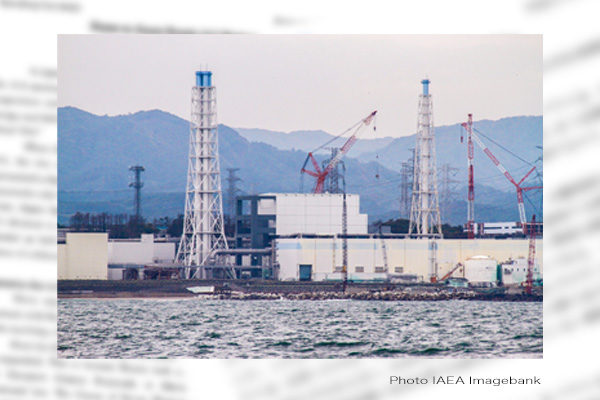The Japanese government’s decision to release water including radioactive tritium from the crippled Fukushima Daiichi Nuclear Power Station of Tokyo Electric Power Company Holdings Inc. into ocean, though belated, can be appreciated as a political decision. In the future, Prime Minister Yoshihide Suga should take leadership in conducting domestic and international public relations campaigns to prevent relevant harmful rumors from spreading.
Some Japanese and South Korean media describe the water as “contaminated water” in a malicious manipulation of the water’s image. Neither the government nor Tokyo Electric Power has ever said contaminated water would be released into ocean. Accumulating at the Fukushima Daiichi site is water including highly radioactive materials, but it has been purified and treated with a special advanced liquid processing system known as ALPS, which is designed to almost eliminate radioactive materials. The ALPS performance has been upgraded from the initial phase.
Rebut harmful rumors
Tritium cannot be eliminated from the water with present technologies and is left in the treated water. Tritium is generated not only in nuclear reactors but also through cosmic rays’ collision with oxygen and nitrogen in the atmosphere. The radioactive material abundantly exists in the natural environment including seawater. This is the reason the treated water is globally allowed to be released into ocean. While nuclear power plants in South Korea and other foreign countries have released treated water into ocean, such water from the Fukushima Daiichi facility alone has been viewed as problematic.
The government decision should have come earlier as tanks to store the treated water are due to be filled up as early as autumn next year. The government has failed to fully rebut harmful rumors spread by those reiterating false assertions. By accumulating the treated water in tanks, instead of releasing it into ocean, the government has given an impression that the release would be problematic.
When he was environment minister, Yoshiaki Harada tried to tackle the treated water problem, saying cuddling alone could not heal disaster-affected areas. Soon after succeeding Harada as environment minister, Shinjiro Koizumi, a son of a former prime minister, told fishermen in Fukushima in September 2019 that he would frankly apologize for the Harada remark that could have affected their confidence in the government. Such apology might have been exploited by South Korea and others.
Koizumi now says a delay in the decision to release the treated water into ocean would impede reconstruction in Fukushima affected by the power station’s accident caused by the Great East Japan Earthquake in March 2011. If the tanks are left at the site, people who have been forced by the accident to evacuate from areas around the crippled nuclear facility would be discouraged from returning to their hometowns. Food produced in Fukushima is safe. Radiation has never caused health damage in Fukushima. Koizumi should take leadership in countering wrong views and harmful rumors about Fukushima at home and abroad.
The Science Council of Japan that describes itself as representing Japanese scientists should also contribute to eliminating prejudice against Fukushima from scientific viewpoints.
Restart nuclear power plants
The treated water issue is closely linked to desirable future of energy in Japan. Since the Fukushima accident, safety measures for nuclear power plants have been substantially enhanced. Nevertheless, harmful rumors are affecting the restart of nuclear power plants as well as the release of the treated water. Prime Minister Suga, who has vowed to seek to realize a decarbonized society by 2050, should clarify a policy of newly constructing and expanding nuclear power plants and make another decision to promote the restart of existing nuclear plants.
Takashi Arimoto is publisher of Monthly Magazine SEIRON at the Sankei Shimbun newspaper.


